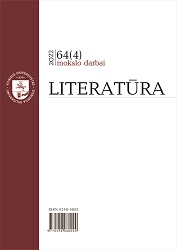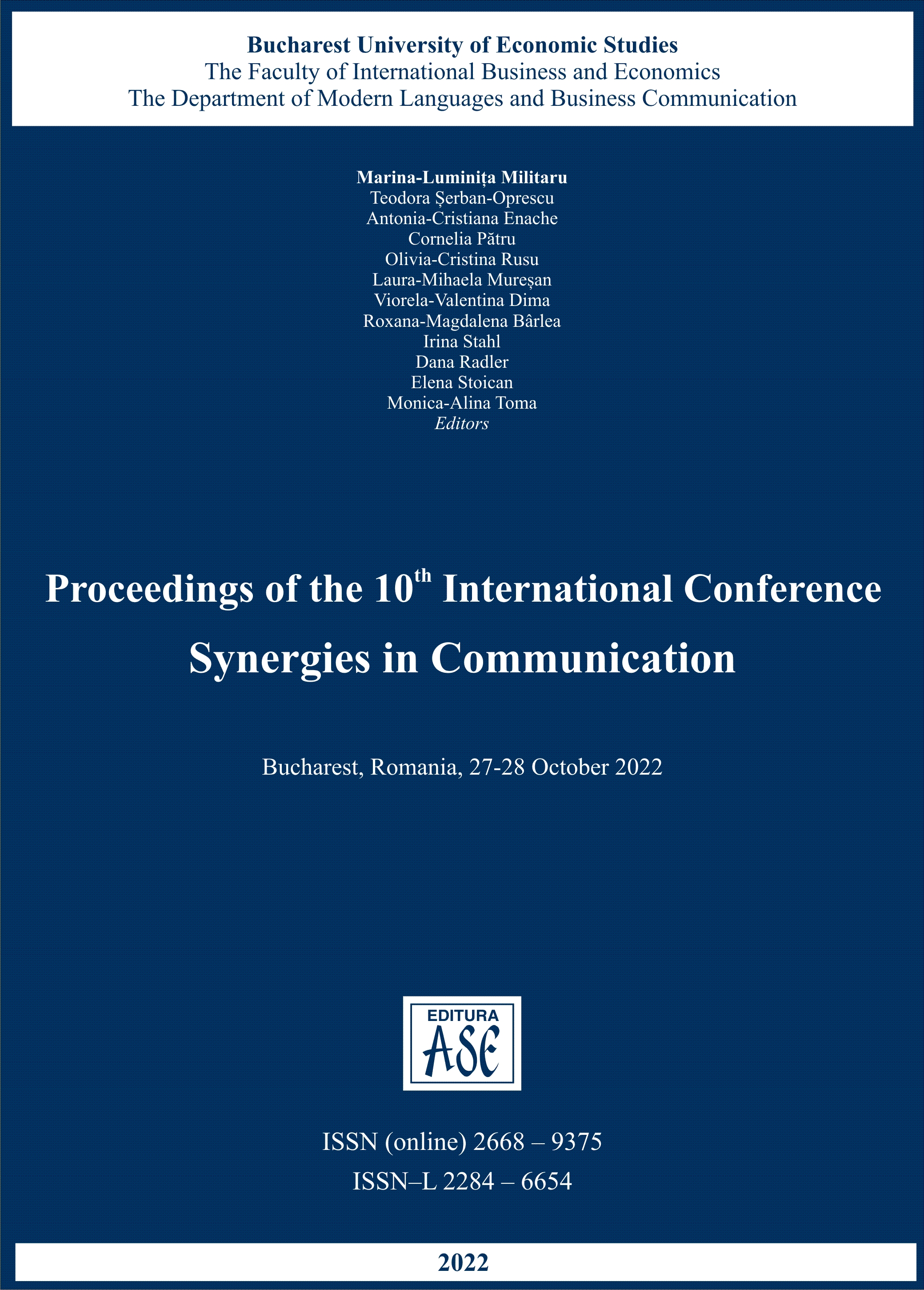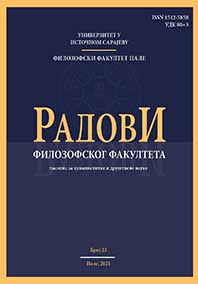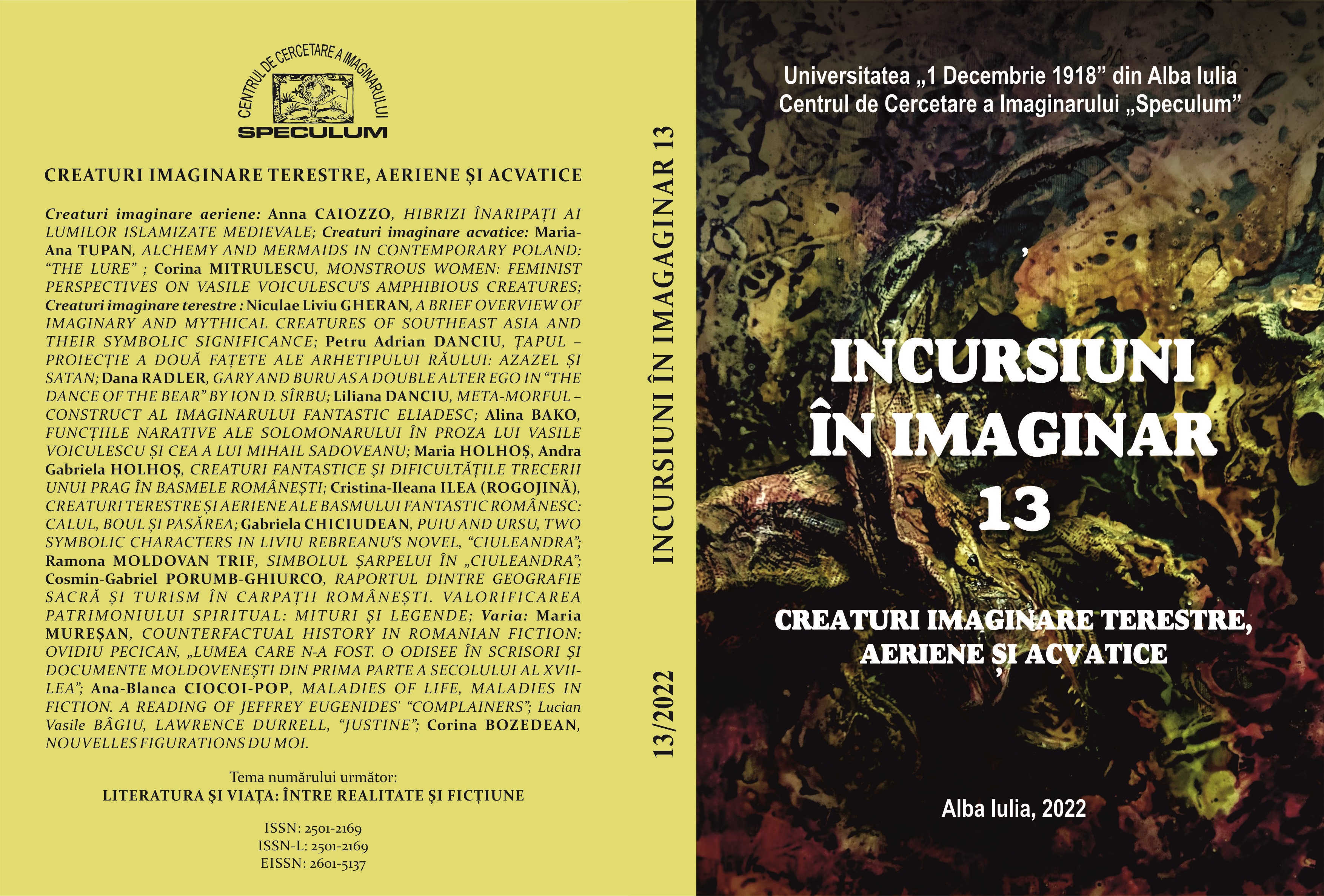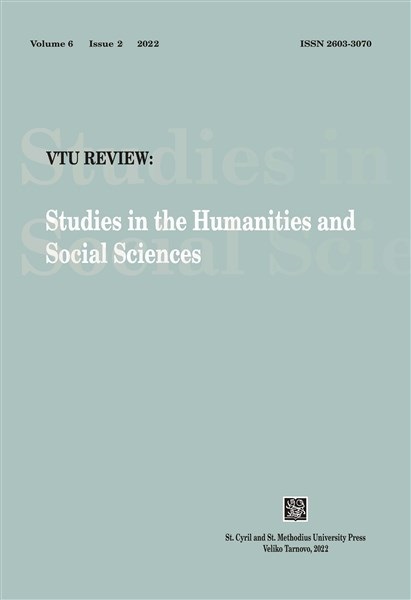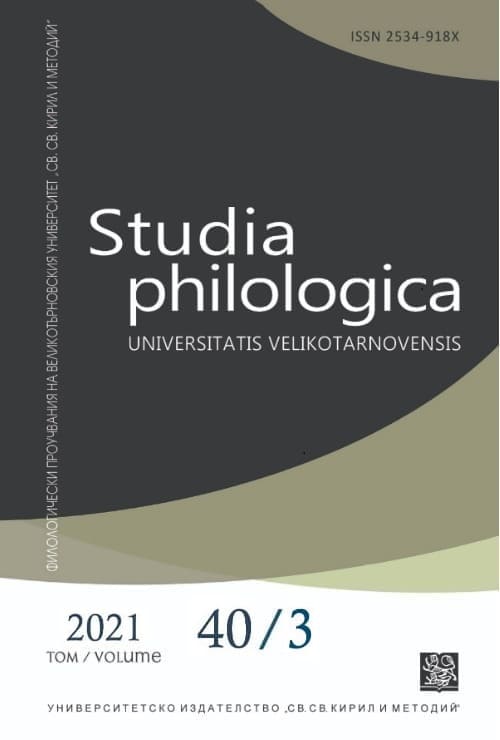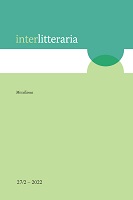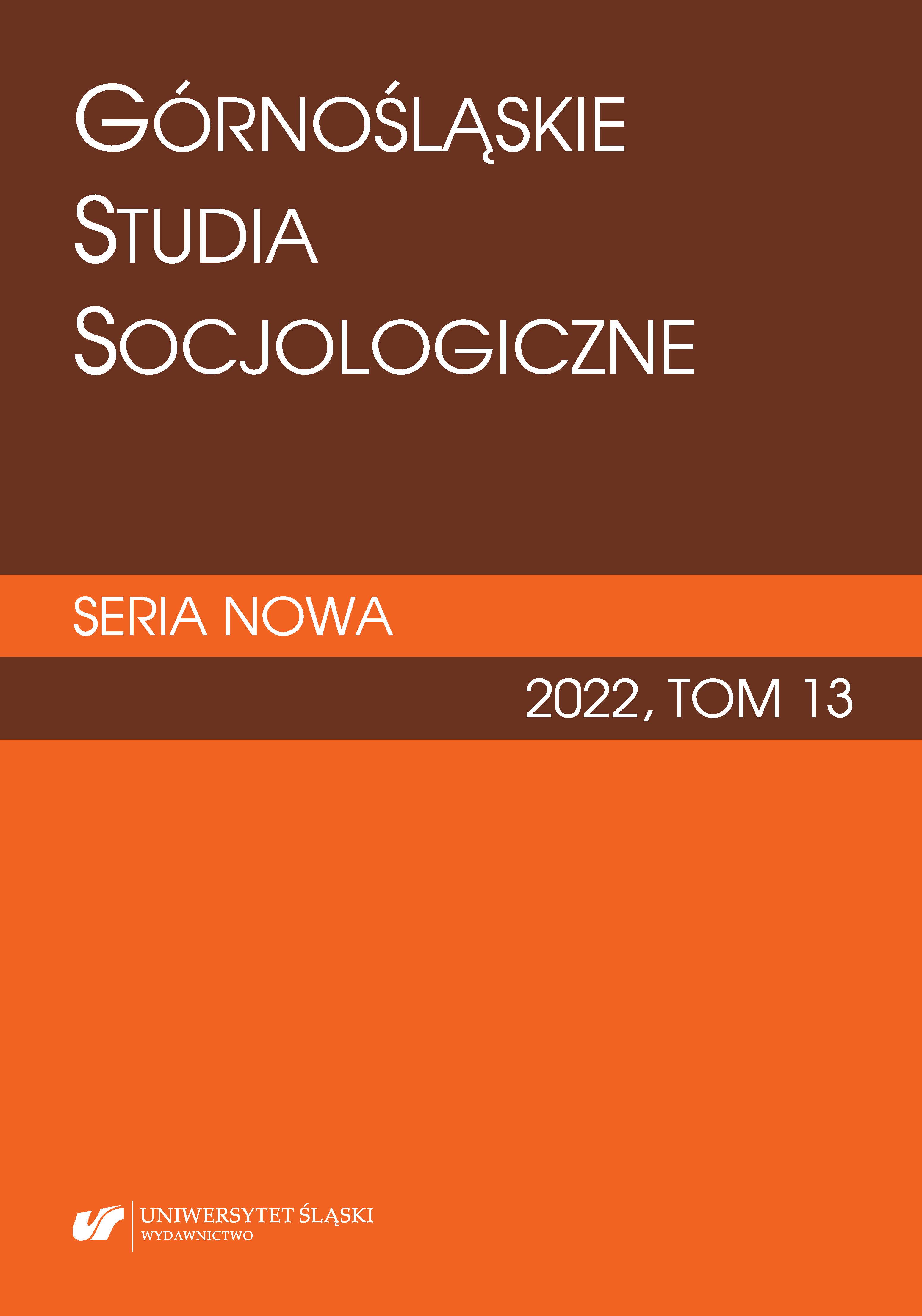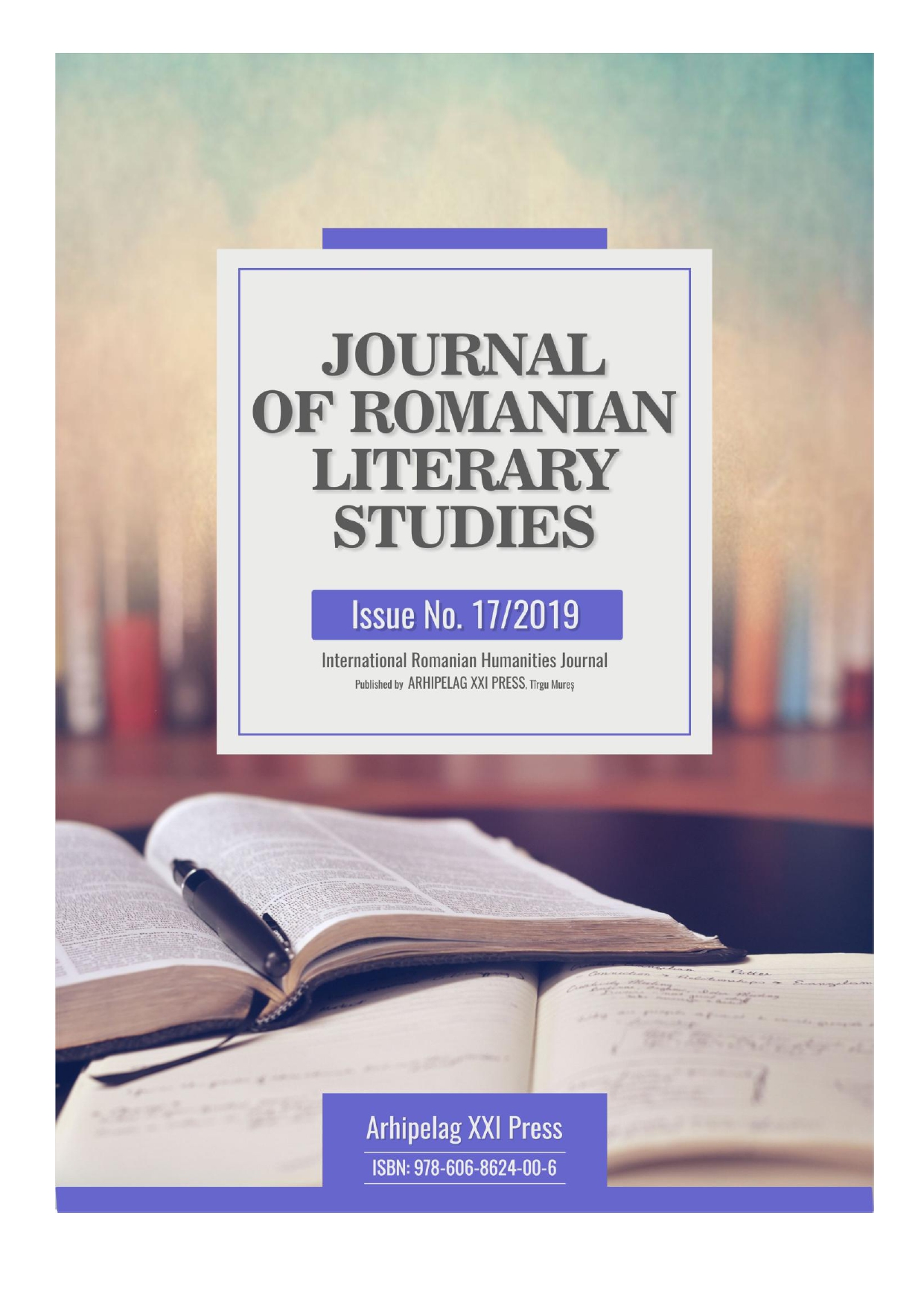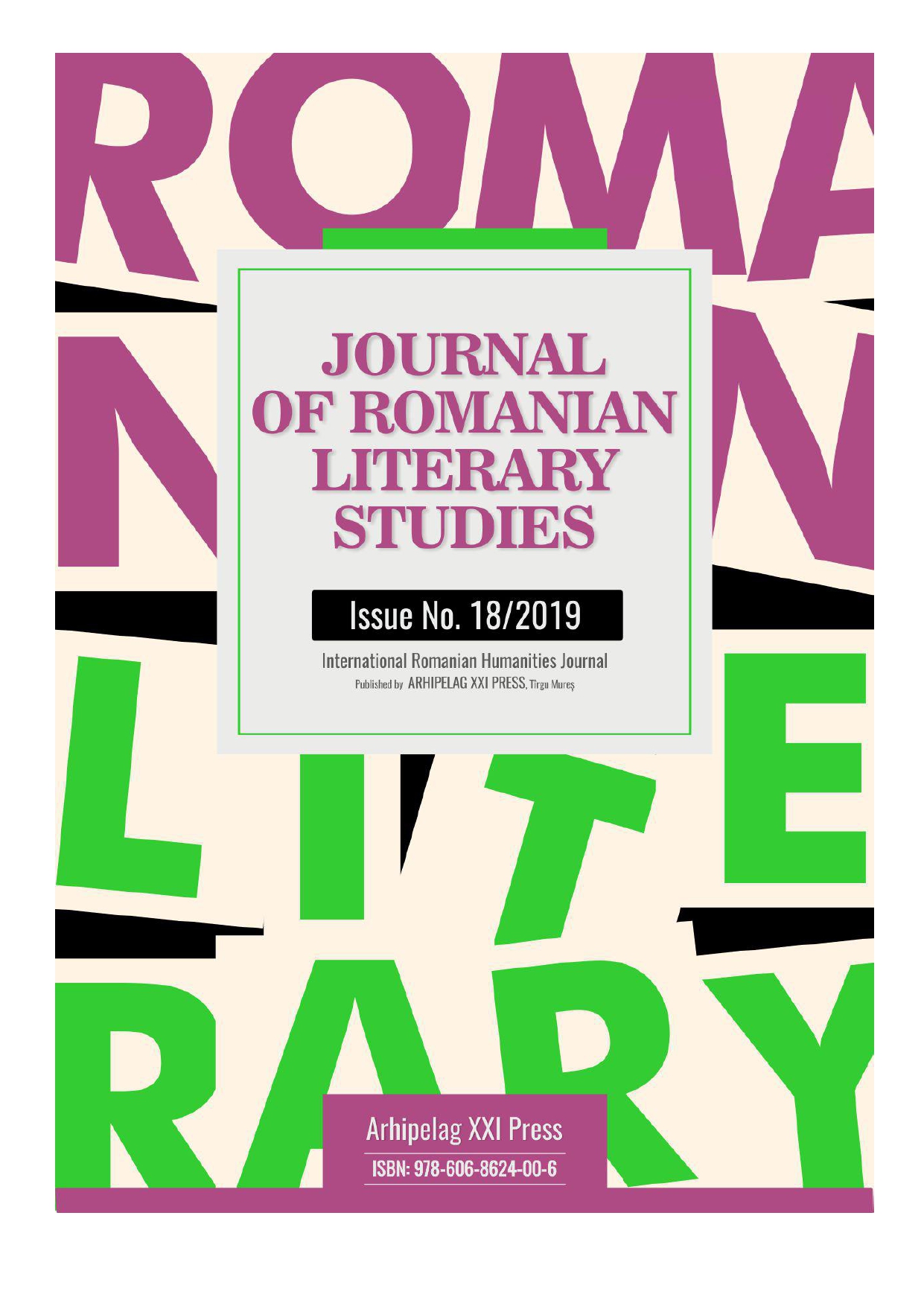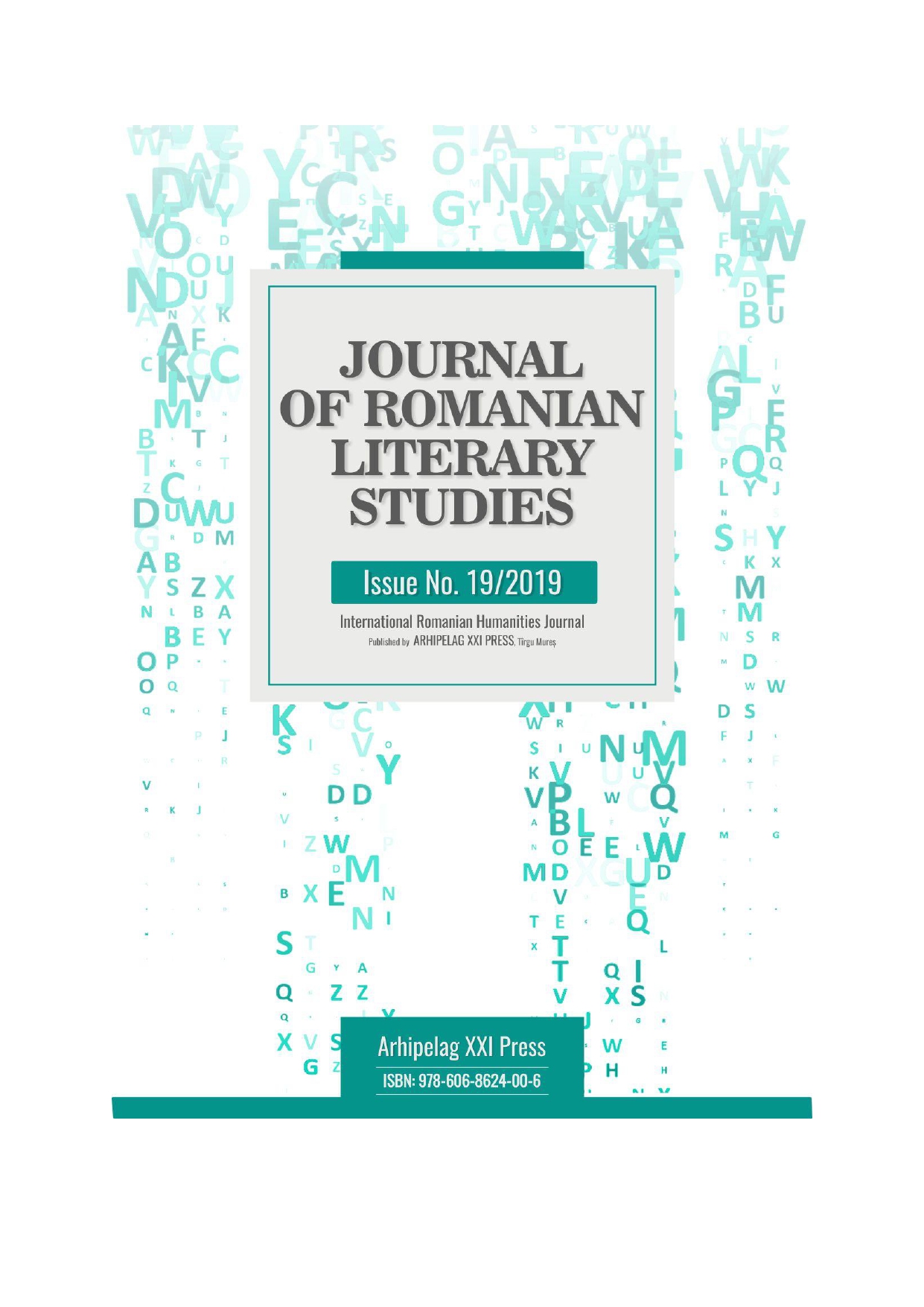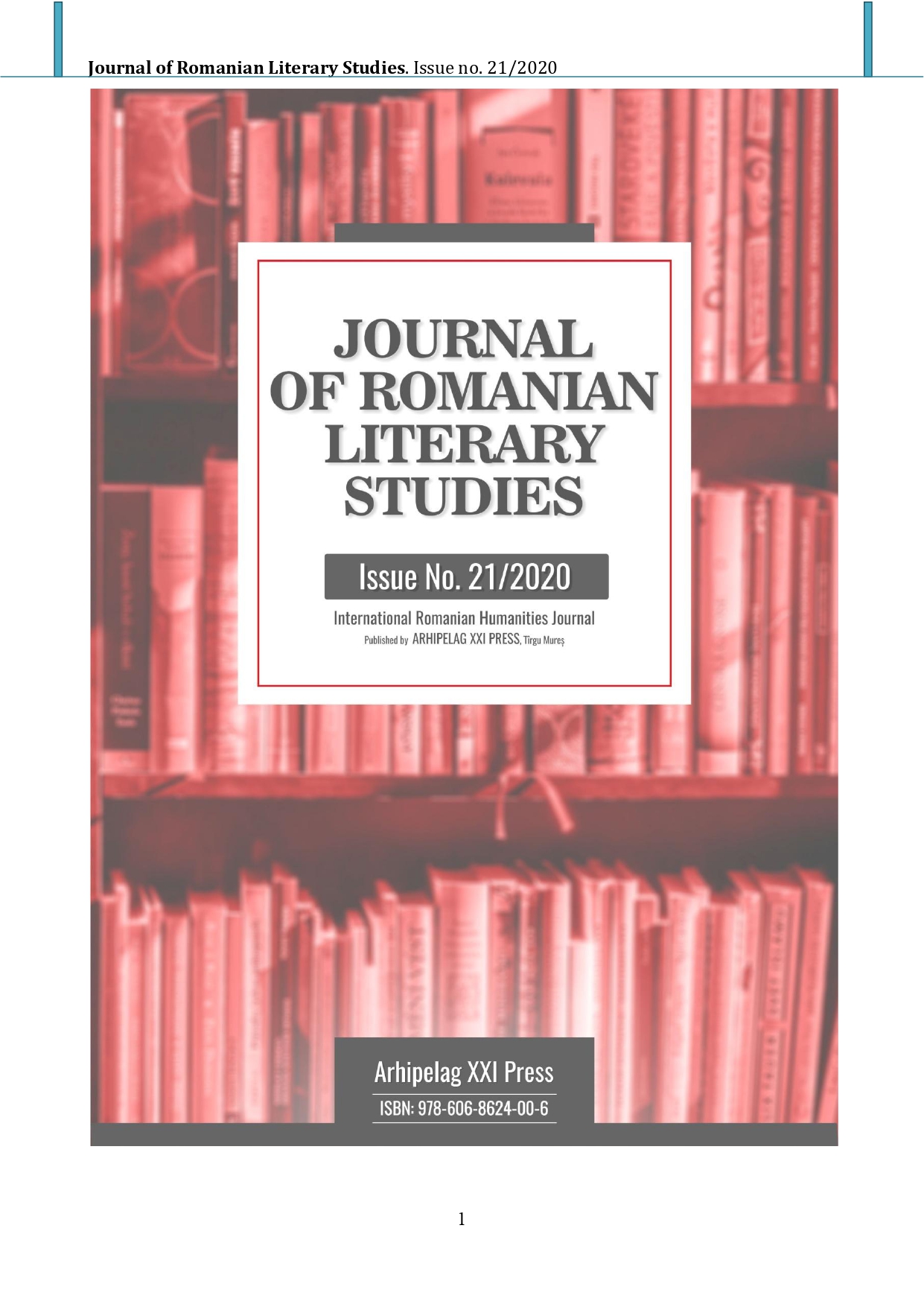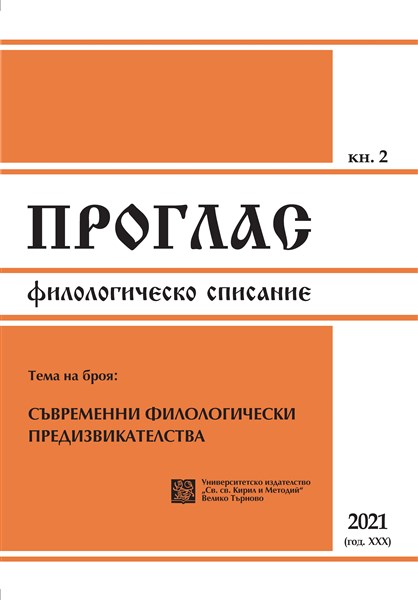
Символи на несъзнаваното в „Леката принцеса“ на Джордж Макдоналд
The article explores some of the aspects of George MacDonald’s fairy tale “The Light Princess”, related to the sphere of the unconscious. Using Freudian psychoanalytical theory as a basis, I demonstrate that the author’s words tell us more than they were meant to and that some of them are symbols which, more than thirty years after the publication of the fairy tale, Freud recognised as messengers of the repressed. I first give a brief outline of Freud’s ideas concerning the unconscious; then I discuss in detail the implications of the symbol of falling in “The Light Princess”; lastly, I give several examples of repression as they appear in the fairy tale.
More...
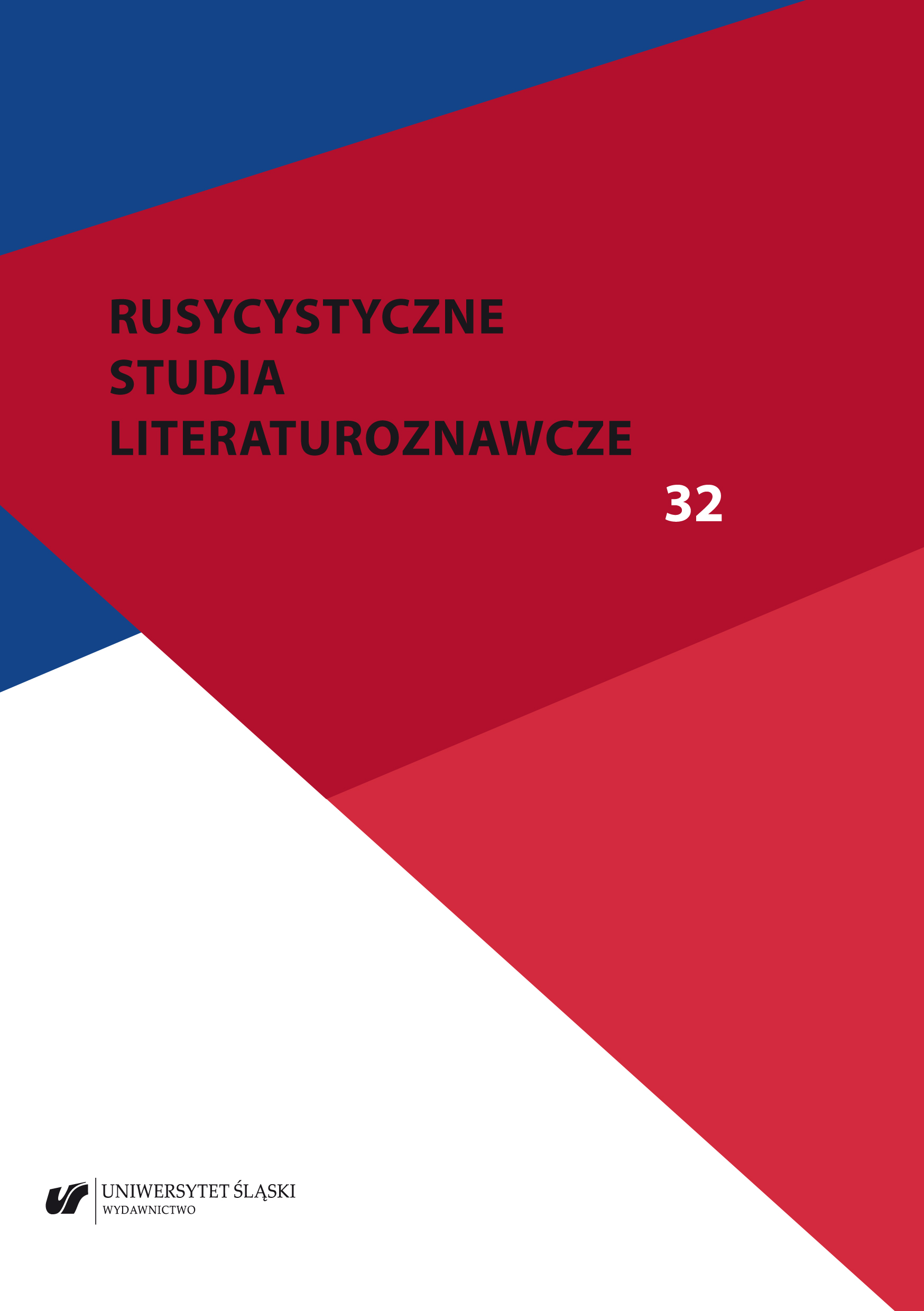
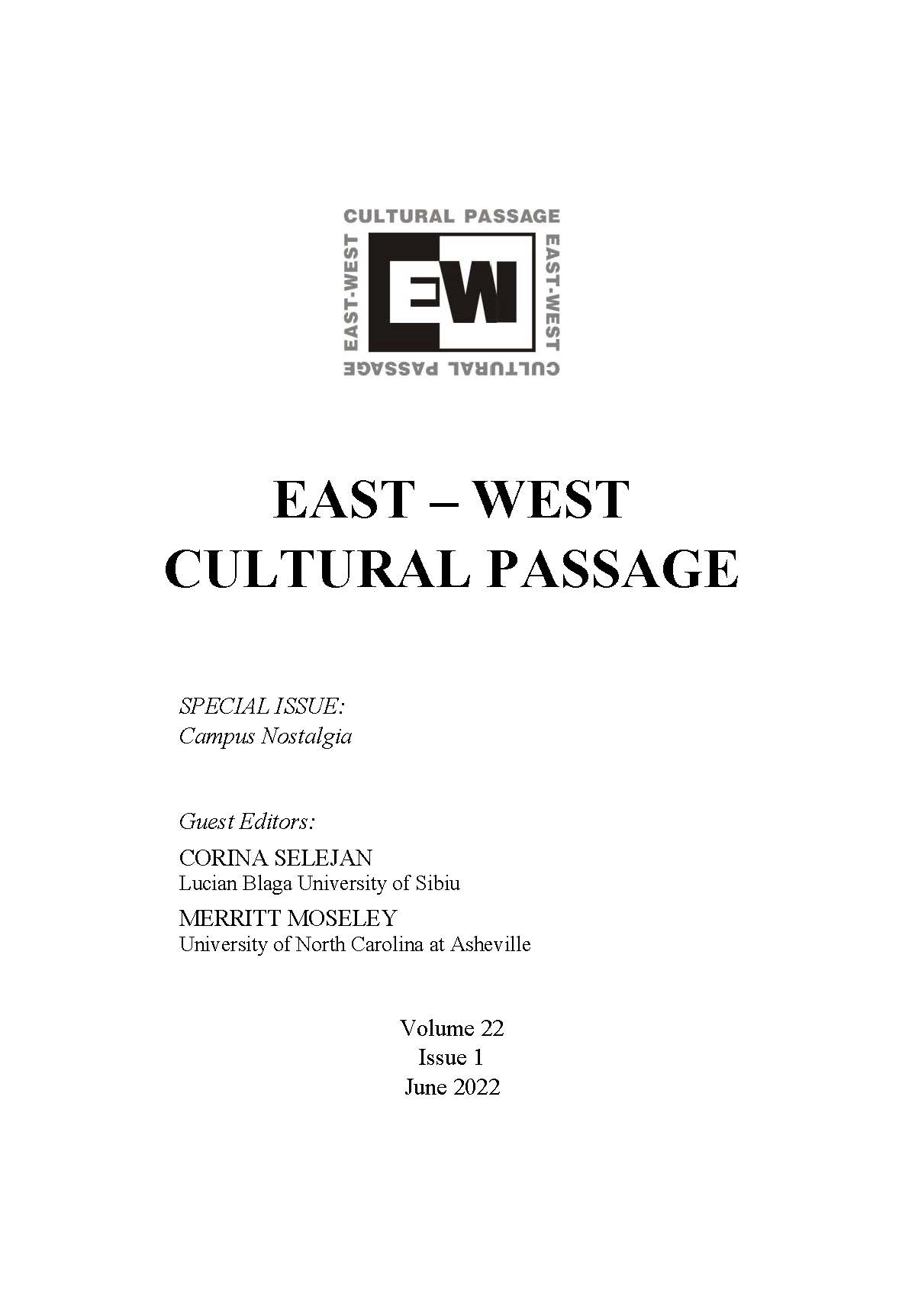
![Steven Levy, Facebook, povestea din spatele unui brand de succes (București: RAO, 2022) [Steven Levy, Facebook, l’histoire derrière un brand de succès, Bucarest : RAO, 2022)]](/api/image/getissuecoverimage?id=picture_2022_71982.jpg)
